Syria war: Seeking 'normal life' under siege
- Published
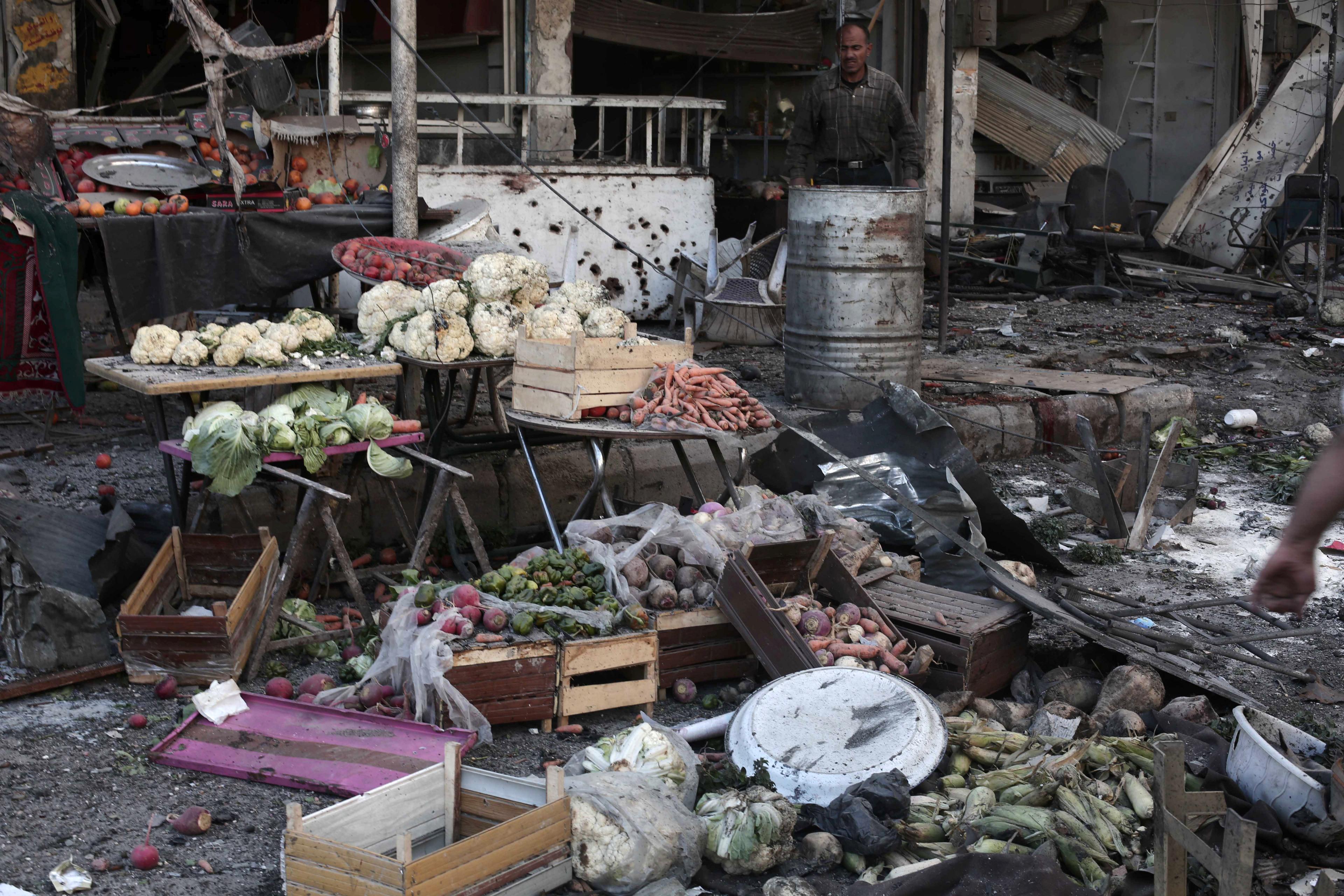
About 625,000 people are living under siege, the UN says
Residents of a Damascus suburb are working to bring a sense of normality back to their lives after six years of war.
When rebel groups seized Eastern Ghouta in 2012, the government responded by cutting basic services such as power and laying siege to the area.
Over time, residents have worked to provide the kind of basic functions that many urban communities take for granted.
But their efforts are often hampered by the brutal and prolonged conflict that touches every aspect of life.
"Our reality is being intentionally isolated from the rest of the world," Abou Ramez, one of the pioneers of civil projects there told the BBC.
Local councils were initially formed to provide relief work and basic municipal services, such as water and waste management.
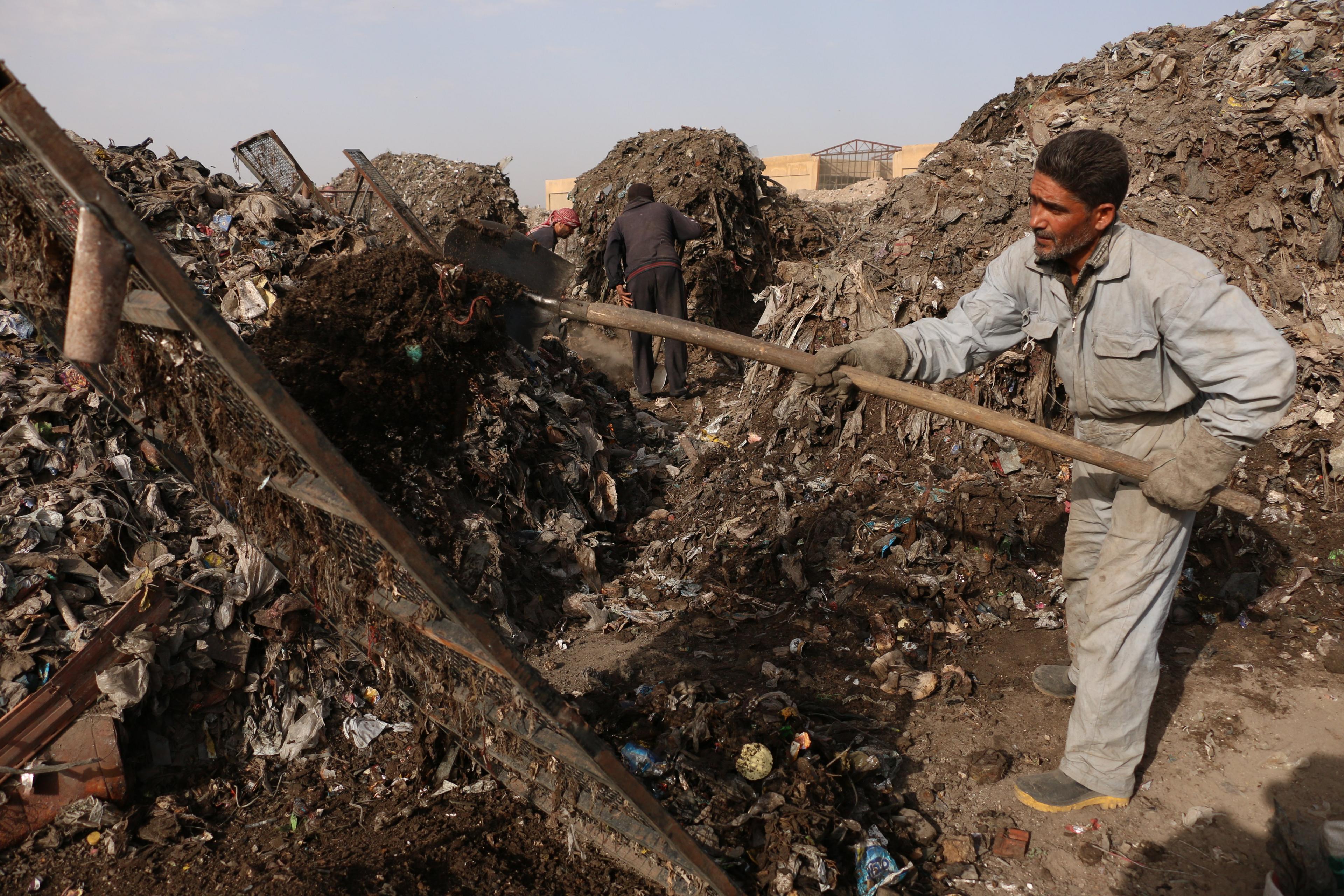
Waste management is one of the essential services undertaken by local councils
"We used cow manure to generate energy for generators to irrigate land," Mr Ramez says. Power is also generated from waste products, and heating oil extracted by melting plastic.
Over time the councils' role expanded to providing education and counselling centres.
Projects are funded by external donors.
Abou Ramez, says that councils try to remain neutral towards militant groups, but they also recognise the opposition "interim government", formed in 2013 and based in Turkey.
The Syrian government does not recognise the councils and characterises organised activity within rebel areas as the work of armed militia or "terrorist" groups.
'Threat to regime'
"It is exactly this kind of civil body that constitutes the biggest threat for the regime," says Majd al-Dik, whose team works on opening support centres for children.
It has also worked to put Eastern Ghouta's large agricultural areas to use, by supporting local farmers to provide food for residents.
However, Syrian forces seized the farmland just one week before the harvest in 2016.
"Turning people from service providers into dependents - this is the goal behind targeting civilians," Mr al-Dik told the BBC.
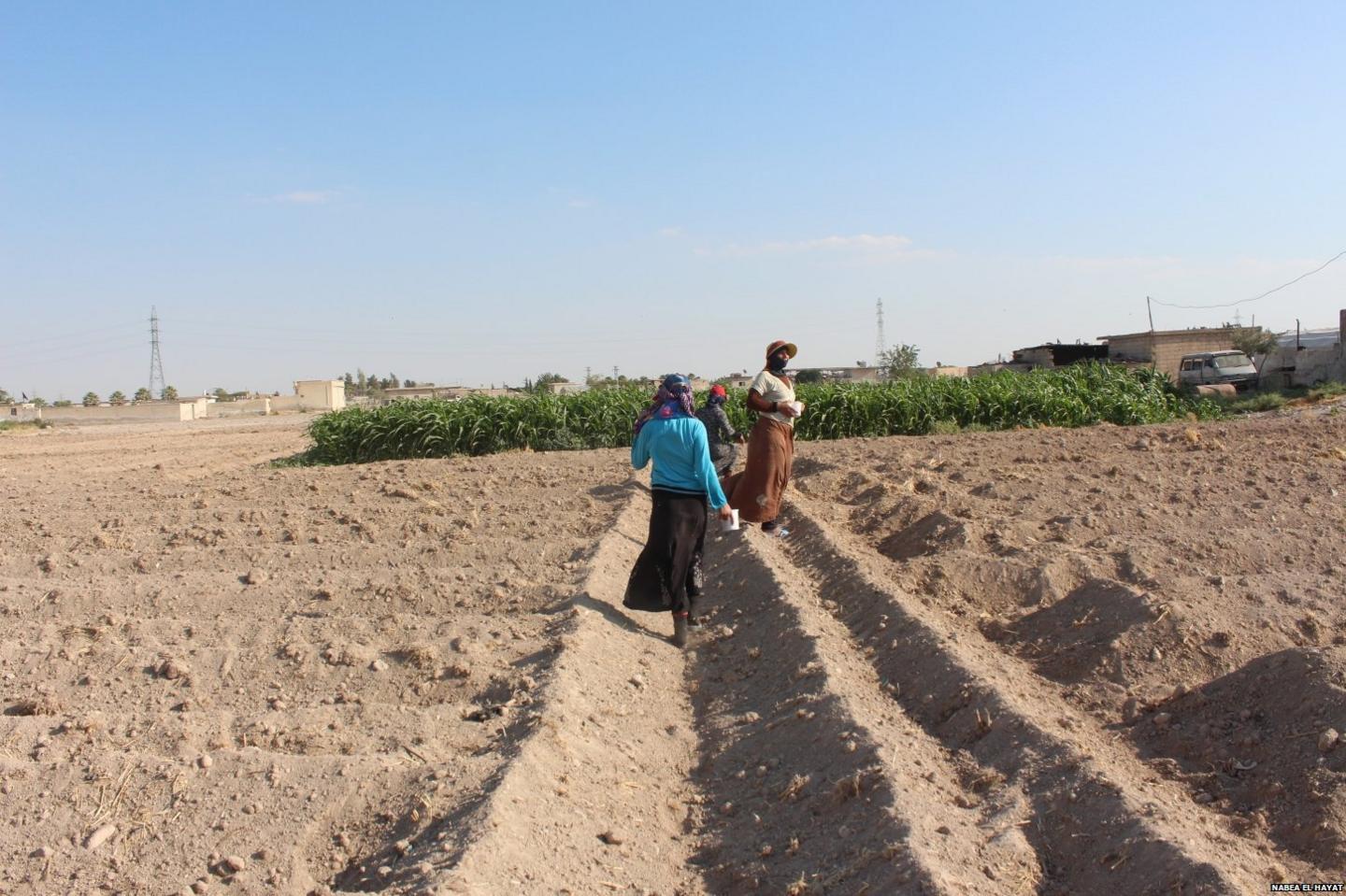
Local farming has helped besieged areas to retain food supplies
Over 42 councils have been formed in the area since 2013, and members have been elected through democratic means since 2015.
An elected "municipal council" for all opposition-held areas in the Damascus countryside was also formed, as well as an umbrella organisation representing over a hundred medical, relief, educational and other civil institutions, Abou Ramez says.
Rebel infighting
Recurring internal fighting between rebel groups has also added to the obstacles facing civil work in Eastern Ghouta.
When infighting first broke out in 2016, residents, activists and notable civil society figures staged demonstrations and sit-ins against the violence. Civil society figures also mediated between the disputing sides.
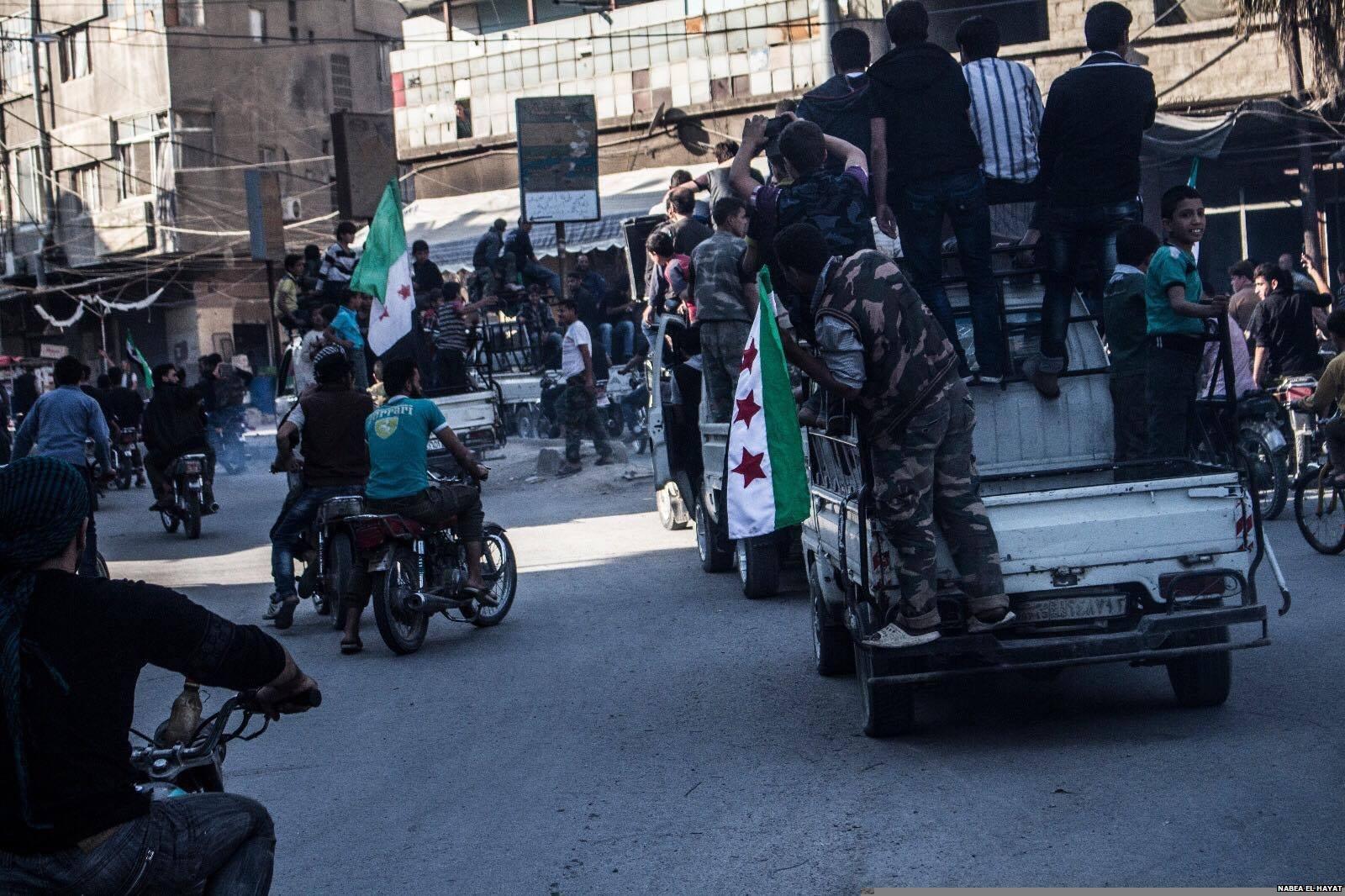
Residents in Eastern Ghouta protest against rebel clashes
And in late April 2017 - exactly a year later - clashes broke out once again and several civilians were injured as they protested.
Mr al-Dik says that movement around the area is severely restricted due to rebel snipers and checkpoints.
Meanwhile, the Syrian army and its allies have been advancing in the nearby strategic suburb of Qaboun, further tightening the siege and increasing the possibility of bombardment on the area.
'Evacuation' fears
Around two million people lived in Eastern Ghouta before the war began in 2011. Today there are around 400,000.
As well as the threat of violence, residents also face the fear of forced evacuation as the conflict turns in the government's favour.
In recent months, thousands of people in rebel-held towns have left their homes as part of deals between the government and armed groups.
"To evacuate the area is to destroy the civil body that has been established," Majd al-Dik says. "It's a catastrophe".
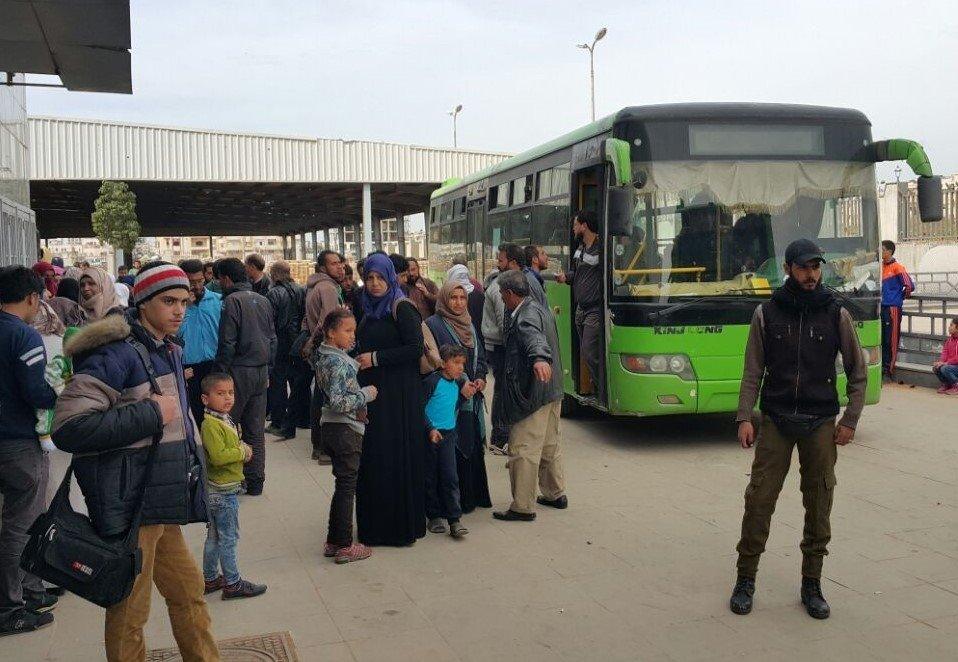
Syria's green buses have become a symbol of evacuations in the country
The Syrian government maintains that evacuations are not being forced on civilians.
Looking ahead to post-war Syria, Majd al-Dik says: "People ask about alternatives. But no-one talks about the local councils or civil institutions. Who is providing services in such areas now in the worst possible conditions?"
Abou Ramez says that many in Eastern Ghouta will never leave their homes.
"Over 200,000 of our residents are capable of carrying weapons. Their united choice is to die and be martyred on this land rather than move to other areas only to be annihilated later on."
BBC Monitoring reports and analyses news from TV, radio, web and print media around the world. You can follow BBC Monitoring on on Twitter, external and Facebook, external.